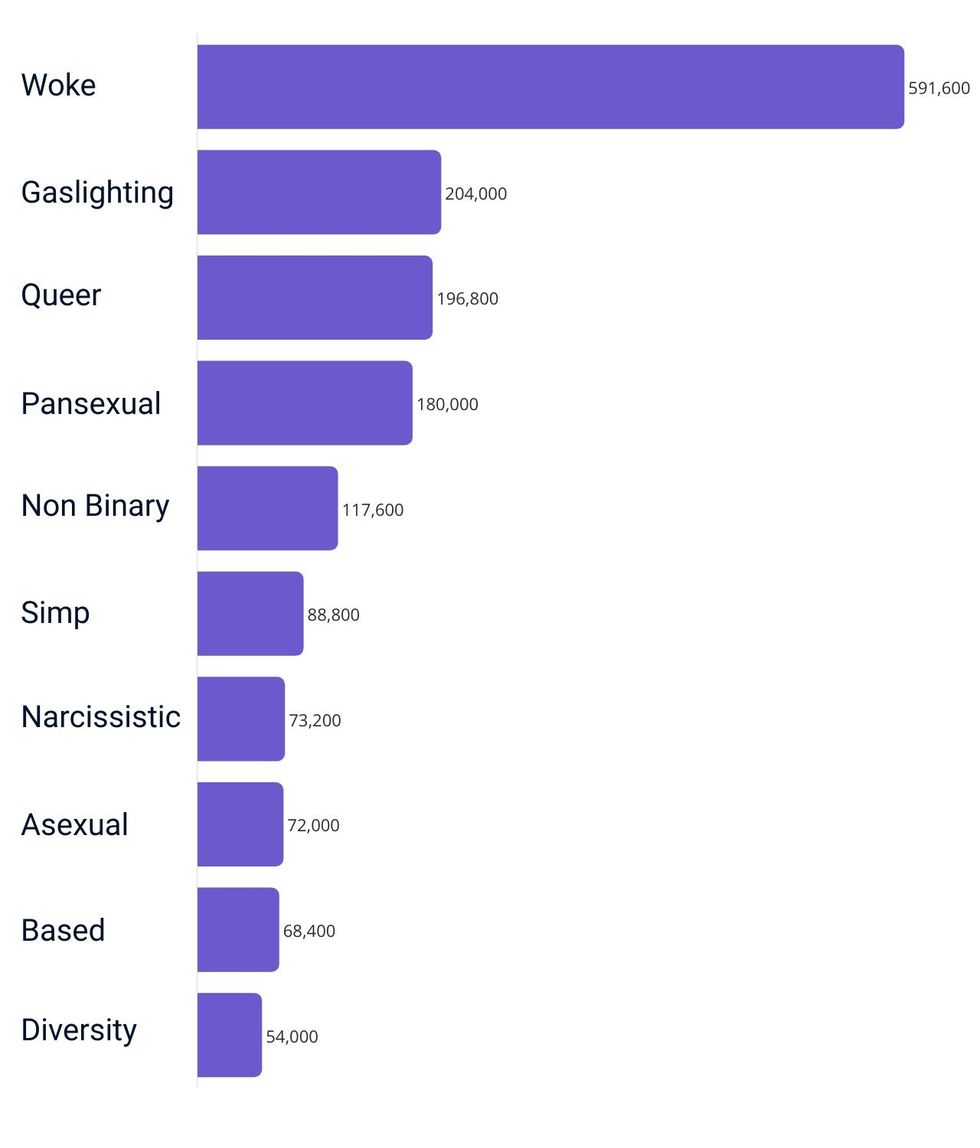Words and language are always evolving and technological advancements such as the internet have changed the way we communicate, especially for the younger generation, which means older folks might get left behind...
Now, research has been conducted by Home hearing test company Hearmore UK where it used Google search data to find out the UK's most misunderstood words this year.
The study has revealed that “woke” is the UK’s most misunderstood word, with Brits searching “what does woke mean” almost 600,000 times this year alone.
Sign up to our free Indy100 weekly newsletter
The term "woke" originated in African-American Vernacular English (AAVE) and according to the Oxford English Dictionary, the word means "Originally: well-informed, up-to-date. Now chiefly: alert to racial or social discrimination and injustice."
The word was popularised in 2014 during the Black Lives Matter movement as the hashtag '#staywoke' took over social media amid the ongoing racial injustices in the United States.
In recent years, the right has used "woke" as an insult to the left amid the changing climate of political correctness while critics argue "wokeness" is performative and exaggerates social and cultural issues.
The word “woke” was the focus of a recent BBC interview with actor Rakie Ayolam, causing searches for “what does woke mean” to increase by 123%.
In second place was another term popularised by the internet, “gaslighting," with over 200,000 searches and this means to "manipulate someone by getting them to question their own sanity."
A number of gender and sexuality terms also feature in the top 10, including pansexual, queer, asexual and non-binary.
Below are the top 10 misunderstood words in the UK, along with the number of total searches this year.

It appears people in the UK love a good Google to the meaning of words as we do it over 10 million times a month, with words and abbreviations popular on social media commonly taking the top spots.
As Gen Z have labelled the thumbs up emoji “passive aggressive”, the fact that many of the most misunderstood words are popular with young people is significant.
The study also analysed the most Googled abbreviations, which are also popular among the youth of today.
Here are identified the top 10 below.
Term and Meaning: Volume (2022)
- POV = Point of View - 300,000
- SMH = Shaking My Head - 300,000
- PU = Pop Up (Snapchat) - 168,000
- ICL = I Can’t Lie - 156,000
- KMT = Kissing My Teeth - 144,000
- LMFAO = Laughing My F***ing A** Off - 132,000
- UWU = Cute Face - 132,000
- ISTG = I Swear to God = 112,800
- IG = Instagram - 111,600
- SB = Snap Back (Snapchat) - 110,400
Asa Richards, head of audiology at Hearmore UK noted the impact of people misunderstanding certain words: “It’s common for each generation to have their own meanings for words and ways of communicating but this can cause friction and even isolation when we’re in intergenerational settings.
"As we age, it’s important to stay aware of words and phrases that might be new to us to remain present in conversations with younger relatives or coworkers.
"Much like a new language, learning new words creates new connections in our brains which keeps them active and evolving, an essential practice as we get older," Richards added.
Have your say in our news democracy. Click the upvote icon at the top of the page to help raise this article through the indy100 rankings.














